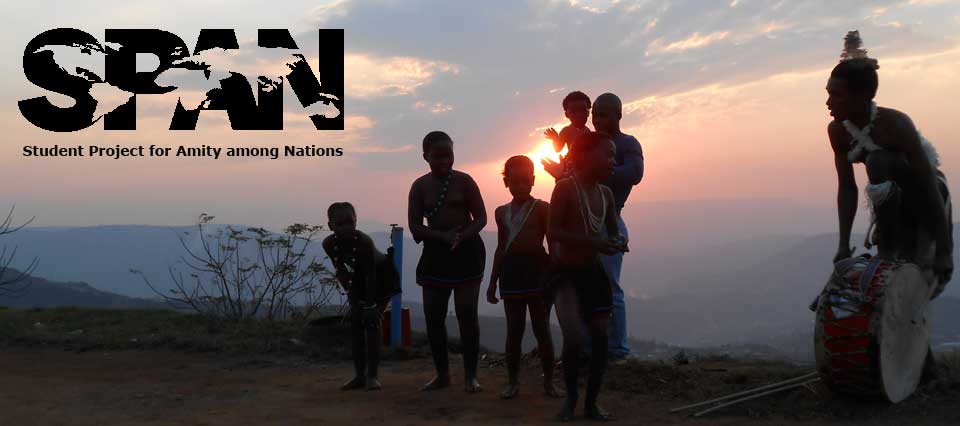Become a SPANner
Join SPAN, the Student Project for Amity among Nations, and you will follow in the footsteps of hundreds of Minnesota undergraduates who fulfilled the SPAN academic program requirements. Many of these SPANners went onto achieve outstanding careers in academia, business, politics and the arts.
When students successfully complete the SPAN research project requirements, they are awarded 10 Hamline University credits (GLOB3080, Interdisciplinary Research Practicum) transferable to other institutions. The following offers greater detail about how the program unfolds.
How SPAN courses and overseas travel unfold
Early Summer: Research Methods & Preparation
Students will register for Interdisciplinary Research Methods (6 credits, Hamline campus hybrid), in which they will develop a research proposal including a topic, research questions, preliminary thesis or hypothesis, literature review and historical context, as well as a methodology detailing the research methods appropriate to their topic that will be used during fieldwork abroad. SPANners will flesh out their topic to ensure it is feasible. They will also develop contacts with experts in their field whom they wish to interview or work with in the host country. This course will be taught as a hybrid course, offered primarily online with one evening meeting per week.
During the Research Methods course, the students will gain familiarity with the history, culture, language, customs, and current affairs of the prospective host country. Students will meet with their faculty advisor, who is knowledgeable about the country and will travel with the group, for in-person guidance and mentoring; they will also get better acquainted with their fellow SPANners.
Summer Abroad: Conducting Research and Field Work Abroad
From early June to almost mid-July students will conduct field work overseas for a period of five weeks with guidance of the Hamline SPAN faculty advisor. Students will register for the Interdisciplinary Research Practicum (2 credits). Upon return, SPAN researchers will also be required to participate in a poster session at the Hamline Interdisciplinary Student Research Symposium; the Symposium is held after the SPANners have fully completed either a substantive research paper or an alternative hybrid arts or media project.
During the time students are abroad will conduct research through interviews, library and archival research, site visits, meetings with experts on their chosen research topic, in addition to other field work that is applicable to the students’ particular research endeavor. There will also be time for sightseeing, recreation, and immersion in a culture and possibly a language different from the students’ own. Formal language learning may be incorporated into the students’ daily activities. The faculty advisor may also schedule excursions.
Upon Return: Writing the Paper
After students return they will begin compiling, analyzing, and documenting their research findings. SPANners will write a 50-page paper or hybrid project with the approval of the faculty advisor and faculty director. Hybrid projects may include various mediums of visual and media art, in conjunction with an abridged research paper. Students must receive approval from the faculty director and faculty advisor for all nontraditional research projects. The paper will be completed and submitted upon return to the United States. A student’s grade for the summer course will be given following the submission of the paper.
During the writing process students will meet further with their SPAN faculty advisor. Students can expect to have multiple drafts reviewed by the faculty advisor, who will be the primary person responsible for working with students to help them in the completion of the final paper. The advisor is also solely responsible for grading the papers. However, the paper will be reviewed by the faculty director and two outside readers who are knowledgeable about the student’s research topic, and whose expertise is very likely different from that of the faculty advisor’s knowledge base.
Students approach potential outside readers during the preparation period. These readers are individuals who has agreed to work with the student and who are very familiar with the student’s research topic. These individuals will read and evaluate the students’ work, offering comments and recommendations to the student. The faculty advisor will take the readers’ evaluation and comments about the students’ work into consideration when grading the paper.
